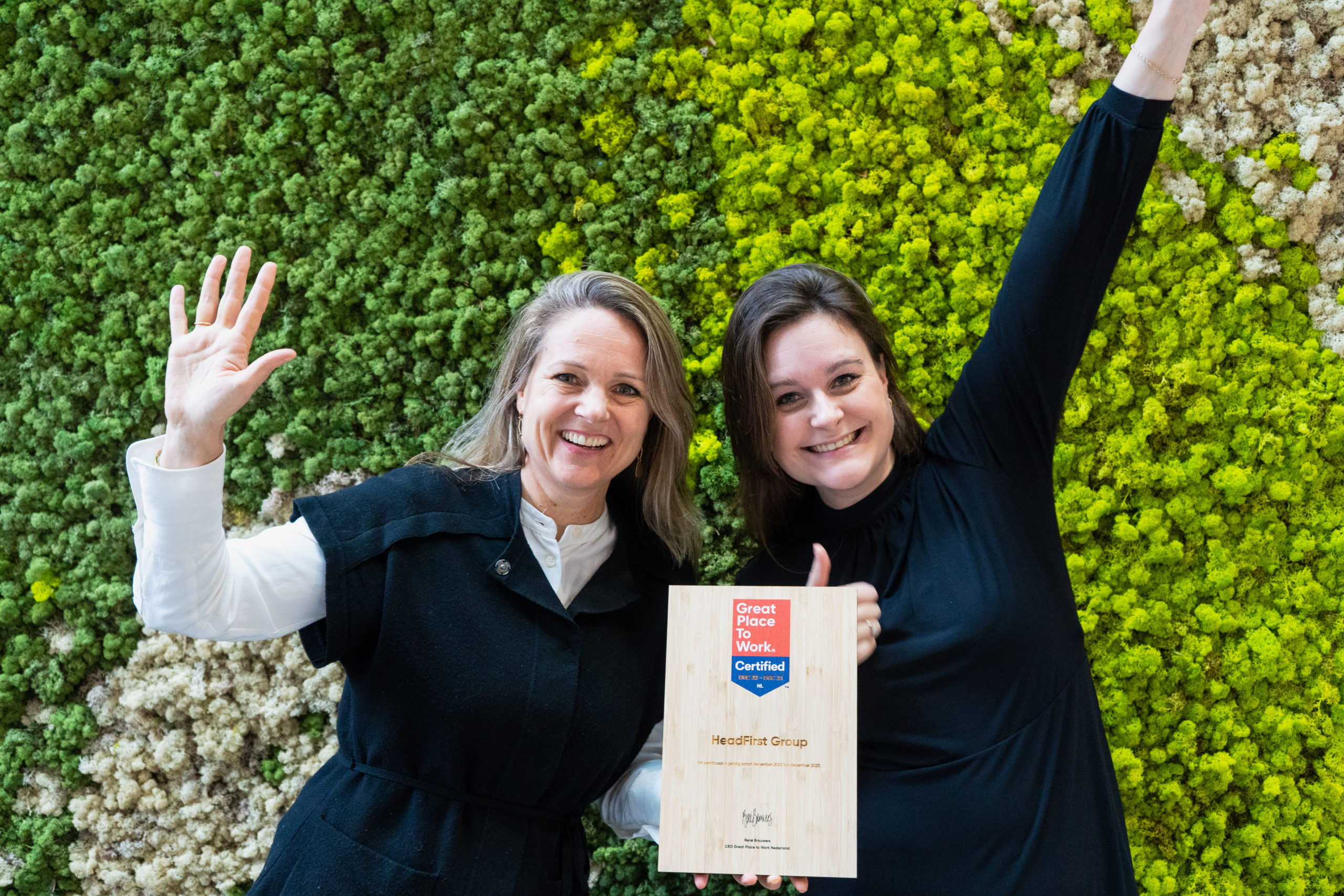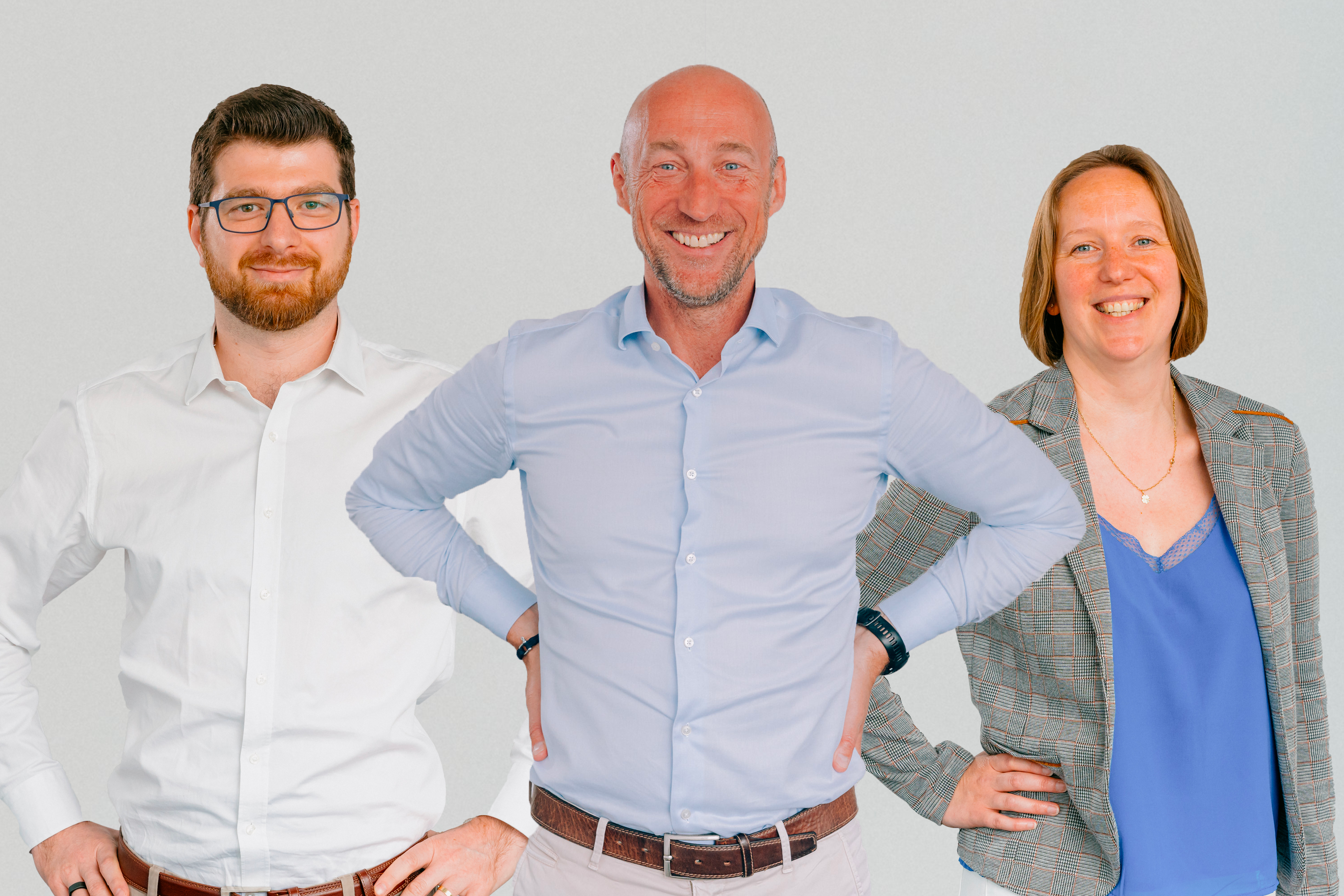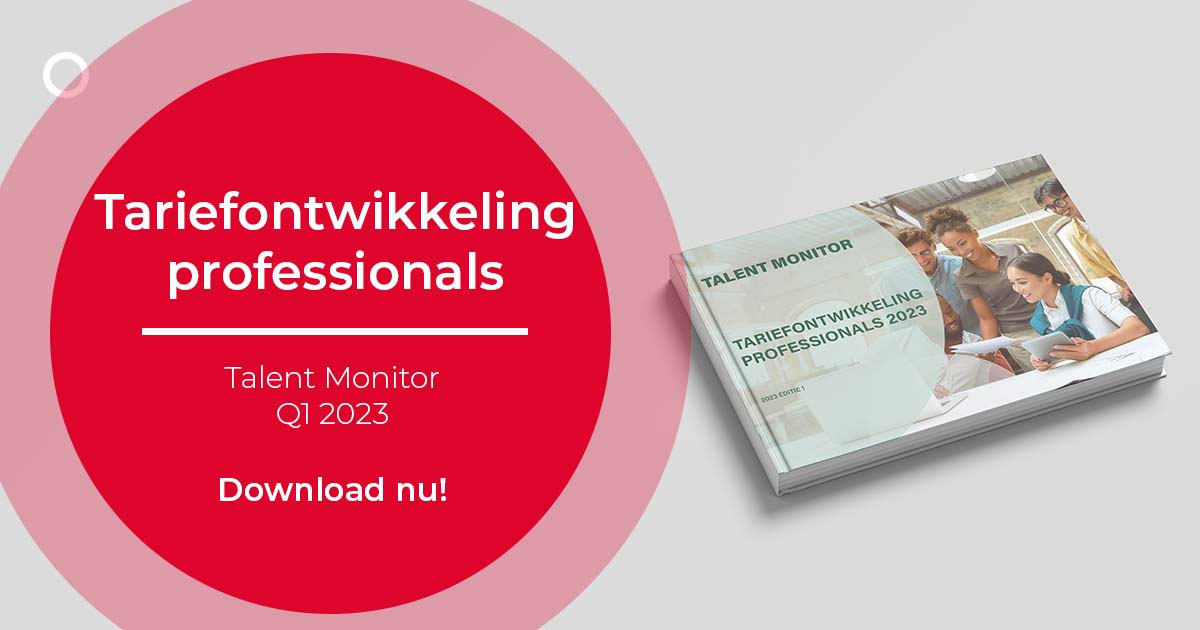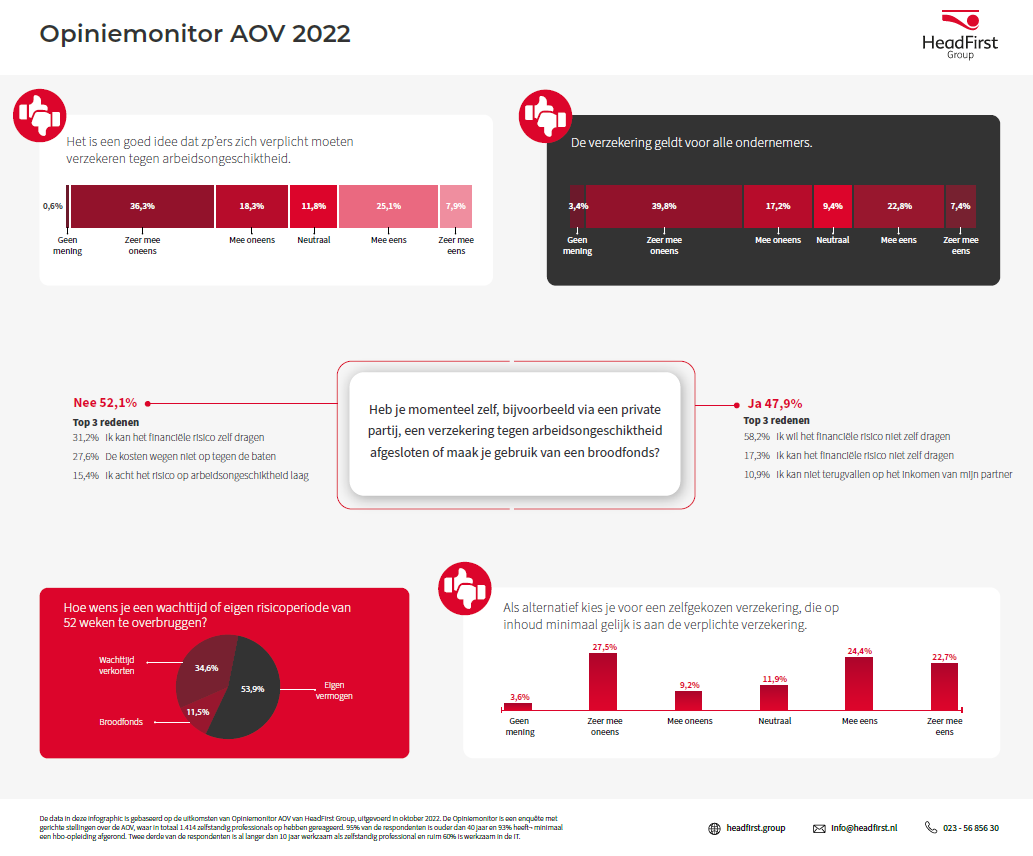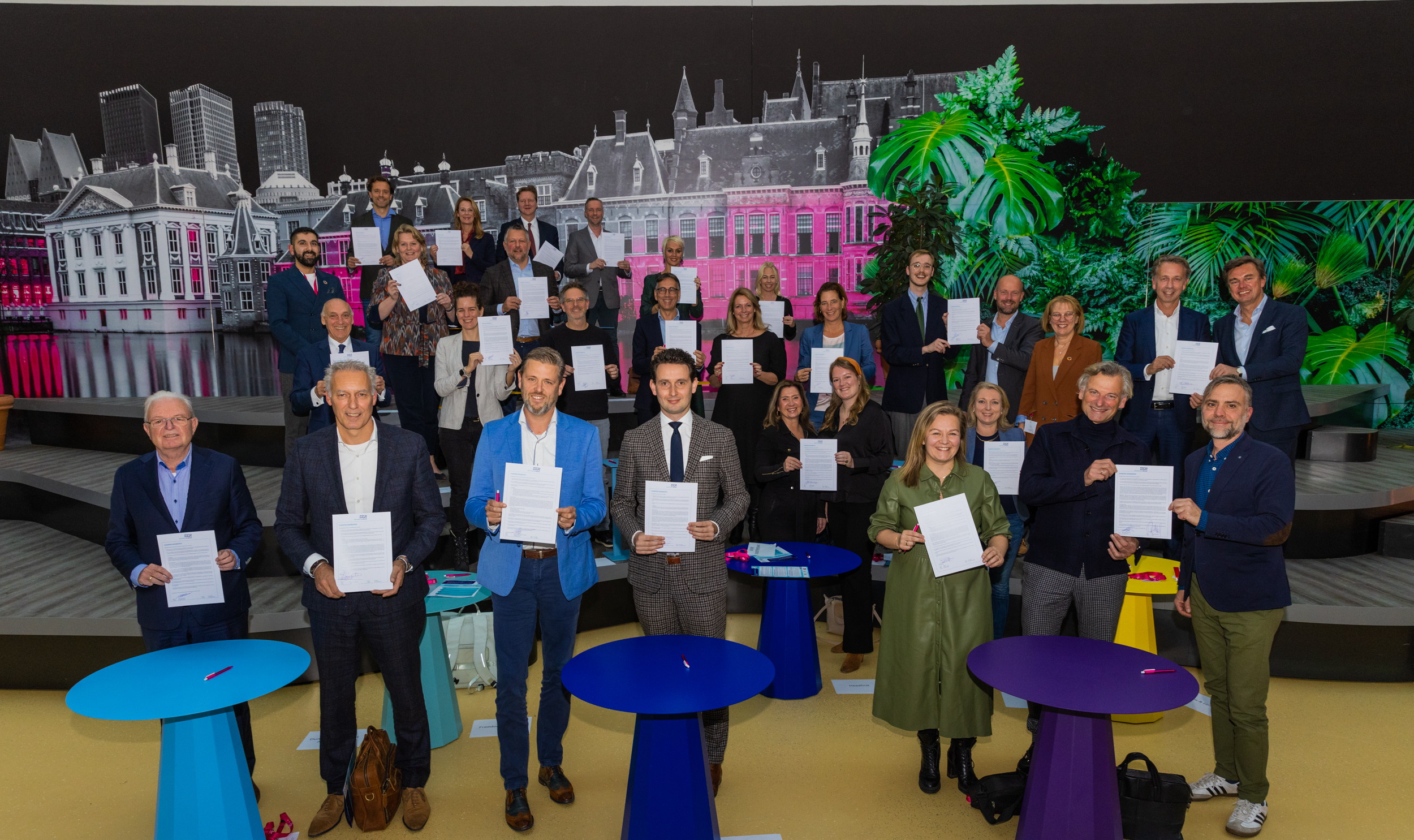Frequently asked questions outline 'Progress letter on working with and as self-employed(s)'
Are you already familiar with the three tracks that the government has devised to restore balance to the current labor market? What plans and proposals are there for the future of working as and with freelancers? Public Affairs Officer Sem Overduin and Business Development Director Paul Oldenburg gave all the ins & outs on this during a webinar. From the many questions asked during the session, it became clear how much the subject is of interest to self-employed people and clients. We share the most common ones below.
- How will the self-employment deduction continue to be phased out?
In the Coalition Agreement 2021-2025 it was agreed to accelerate the reduction of the self-employed deduction. This scheme will be reduced to €1,200 in 2026 and further reduced to €900 in 2027. The self-employed deduction for starters, the starter's deduction, will remain unchanged. However, self-employed people will be compensated during this cabinet period with an increase in the labor discount. With this measure, the cabinet wants to reduce the differences in tax treatment between employees and the self-employed. More information about the self-employed deduction and the steps that will be taken in the coming years can be found here.
- Why is the Fiscal Old Age Reserve (FOR) being abolished?
Since Jan. 1, 2023, you can no longer build up a retirement reserve. The government abolished it to prevent entrepreneurs from using the fiscal old-age reserve to obtain tax deferral. The old-age reserve built up until December 31, 2022, can still be settled according to the current rules. This means that it can remain on the company's balance sheet and can be used in the future to negotiate a qualifying annuity, or it must be settled no later than when the company ceases operations. Also with these measures, the government wants to ensure more equal taxation between employees, self-employed persons and shareholders.
- How is the element of "self-employment" further implemented?
Current case law looks at contraindications to the existence of an employment contract. Some of these are included in the Payroll Tax Handbook. Some examples are (1) the performance of work on the basis of a result obligation, (2) specific knowledge and expertise of the worker that employees within the organization do not have, and (3) that the worker receives substantially higher remuneration than employees doing similar work in salaried employment. In the coming period, it will be worked out with social partners, experts and stakeholders which facts and circumstances indicate self-employment and how these contraindications can be given weight in assessing the employment relationship.
- What is the current status of the enforcement moratorium?
In the period January through October 2022, 275 company visits and 200 book audits were conducted on the qualification of the employment relationship. Partly because of the limited quantitative capacity and the complexity of assessing the employment relationship, it is complicated for the Tax and Customs Administration to take effective action on false self-employment. On the other hand, additional staff have been trained and the Tax and Customs Administration currently has 80 FTE for enforcement.
- What plans does the Cabinet have for the enforcement moratorium?
In the Cabinet' s response to the reports issued by the Netherlands Court of Audit and the National Audit Authority, the Cabinet expressed its ambition to improve this enforcement in the short term and to lift the enforcement moratorium entirely by January 1, 2025 at the latest. In the run-up to January 1, 2025, the Tax and Customs Administration will devote extra attention to communication about enforcement. This will include the consequences for principals and contractors of the intended abolition and the (financial) risks they run.
- What if an audit reveals (fictitious) employment but no malice?
Then the Internal Revenue Service will issue directions that you can work on. Client and contractor are usually given three months to follow the directions. If this is not sufficiently followed, the Tax Office will impose correction obligations and additional tax assessments.
HeadFirst Group on its turning point to platformization
In conversation with Simone Groeneveld and Bart van der Geest
To rank second in the Flexmarkt Turnover Ranking Top-100, the prestigious ranking of the hundred largest flex companies in the Netherlands, for the third year in a row, and still remain agile. How do you do that? We sat down with Simone Groeneveld, Managing Director MSP services, and Bart van der Geest, Head of Marketing and Communications at HeadFirst Group. We talk about the road to a platform organization, their vision for tech and touch, ambitions and growth. What makes them so successful?
With revenues of over 2.2 billion euros, HeadFirst Group is the strongest grower in the MSP and Intermediary segment. HeadFirst Group is a leading, international full-service HR-tech service provider and specialist in the professional organization of permanent and flexible labor. With a diversity of HR solutions and its platform, they offer total talent solutions. Bart indicates: "We have achieved this growth in part because we have moved from traditional job placement to being able to offer a diversity of solutions, of which MSP is a leading one."
We move as a speedboat between big corporate steamers, where we can really make speed."
Simone explains further, "We have chosen to be a platform organization. Originally, we are not. We are in the middle of a very cool turning point because of the high level of digitalization and the strategic choice to become a platform company. I myself chose HeadFirst Group because we are agile. We move like a speedboat between big corporate steamers, where we can really pick up speed. With a focus on talent. Employing talent as well as possible should be a celebration and this should be serviced as well as possible!"
Tech and touch
What can you do digitally and what do humans do? Where in the process do you choose to have personal contact and when do you let tech work for you? Bart says they are looking for the ideal balance between tech and touch. "We are in a transition from traditional employment intermediary to a platform company. In much of our existing services, 'touch' will always be important. Take our MSP services, but also the partnerships with our suppliers. We see that customers appreciate this. A new part of our services is organized around our online platform Striive, where supply and demand find each other directly and the goal is to make the process end-to-end as digital as possible. If you look sec at the definition of a platform, there is often no "human" involved at all. That will never be the case with us, because we also keep adding 'touch' at the moments when it adds value to the customer journey. When you look at other markets in which platforms move between supply and demand, you see a number of disruptors that have changed the market overnight. But that's more appropriate in the business-to-consumer market, like renting a cab ride or house. In the world of labor, that's going to be a little more steady."
Simone adds: "We want a customer journey that is tech driven as much as possible, because it is ideal for our clients to do things partly online and automated, but that there are also parts of the process where we consciously employ people and take care of them. Think of invoicing and contracting, as well as advising professionals and clients. Where we were previously an HR service provider with tech components, we are now an HR tech service provider. That's where the difference is."
Platform Striive
On the side of independent professionals and suppliers, HeadFirst Group has been working primarily digitally for some time. In its online environment Select move professionals and suppliers for over a decade. Here, a professional can be found by HeadFirst Group recruiters and bid on assignments from hundreds of clients themselves. Transparent and without extra links. Bart says that HeadFirst Group - with its Striive brand - has now also taken the step towards platformization on the client side. "You could say that we were ahead of our time with professionals and suppliers. There is a lot to gain in the steps we will now take for clients. Where we come from helps us make this step."
Ambition
HeadFirst Group's ambition is to double in revenue between now and 2025, but to get there they have therefore had to change their organizational model, Bart points out. "We are already fairly scalable, because we are quite far along when it comes to digitalization, but at the same time we can really take further steps in that. We're in the middle of a transition to an even more scalable organization, because in terms of vision, we foresee that that's where added value lies for the type of company we are."
It is important that as employers we are challenged on our creativity. Rethinking and thinking outside the box of what we have always done. For example, think about looking at skills rather than just an education. Parties and individuals who dare to do that keep themselves in the game and remain agile."
Winning Party
That transition is really necessary, Simone points out. Especially when you consider the tightness in the labor market. "To me, talent is anyone who moves around the labor market. You are a winner if you know how to bring parties together. With that, I see the need increasing when it comes to independence, such as being independent from an employer and freedom in how you can organize your work. This also means that there is still a great need for flexible employment. But uncertain times often also make people want permanent employment again. We are a party that deals with the deployment of talent and it doesn't matter in what form of work. It shouldn't matter. And we want to connect that with tech. How do you make clever use of data and algorithms in this? What role does talent pooling play in this? If you work with HeadFirst Group soon, we will be able to get the best talent out of the market."
Not just the transaction is the focus
According to Simone, that goes beyond just bringing supply and demand together. "How are we going to ensure that we also properly support you as a self-employed person with, for example, training and insurance? Not only the transaction is central, but also providing a platform where you can meet and develop yourself. And by the way, we also make sure you have cool jobs, because we work with parties in the Netherlands that also have the coolest assignments."
Sense of urgency
The talent market is unpredictable and, according to Simone, we still don't understand the sense of urgency of the talent shortage. "We all shout it, only we don't really feel it yet. Doing critical jobs remotely is something organizations find difficult, especially with IT jobs, for example. If that's still an issue you're struggling with, you're really going to have to do things differently. It's important that we as employers are challenged on our creativity. Thinking around and thinking outside the box of what we've always done. For example, think about looking at skills rather than just an education. Parties and individuals who dare to do that keep themselves in the game and remain agile."
"When we look very factually at the data of the labor market and how scarce it is now, but also look at the aging population towards 2030, the labor market is not going to be any different than it is now and it is only going to get tighter. Especially when the workload gets higher and people drop out, the risk spiral is only bigger," Bart points out.
Recruitment marketing automation
A crucial element in what makes you agile as an organization, Simone sees in defining your talent strategy. She partnered with UP for the MSP label Staffing MS because she believes you need to roll out your sourcing and talent strategy in a different way. "I advocate RMA (Recruitment Marketing Automation), because it allows you to build a continuous pipeline and make things transparent. We're also in a competitive market to recruit internally. But we want to be "on" and always engaging with talent. With RMA, we know how to find and entice another target group than we do now. I believe this is a necessary part of your talent strategy. How do you continuously stay in view of your target group? You have to structurally seek that market and be visible, in order to gain insight into the behavior of your target group so that you can follow up much more efficiently. You let RMA technology work for you, allowing you to focus on other things." In conclusion, Bart points out: "It would be crazy that when we digitize more and more on the service provider side, we don't do this in the employee journey. Ideally, we would have done this two years ago and been prepared, but now we're doing it fast and well!"
This article was published on UpinBusiness
HeadFirst Group officially recognized as a Great Place To Work
As of January 2023, HeadFirst Group is "Great Place To Work-Certified. The eponymous global authority that assesses organizations in terms of organizational culture surveyed employees of the leading HR-tech service provider for this purpose. With a Trust Index of 71%, HeadFirst Group meets the criteria for being a great employer. Joke de Graaf, Head of HR: "The certification is a fantastic recognition that our employees experience what we stand for as an organization and remain committed every day."
HeadFirst Group is labeled a 'Great Place to Work' by over three-quarters of the employees surveyed and scores high with 96 percent on a physically safe working environment. The employees experience being able to be themselves within the organization and being treated fairly, regardless of their gender, sexual orientation, ethnic origin and/or religious beliefs. De Graaf explains, "We stand for a diverse and inclusive work environment, where everyone wants to and can use their potential and feels appreciated for it. We are extremely proud to see this reflected in the results."
The road to organizational success
Another theme in which HeadFirst Group excels is trust in the individual. "Our employees receive extensive guidance to help them get the best out of themselves. This is because we believe that if they grow and improve, we as an organization will do the same. A good example of this is the Lean program we started last year, for which colleagues worked in groups on improvement projects. In addition, we pay a lot of attention to vitality and mental health, for example through ergonomic (flex) workstations and access to the platform OpenUp, but also activities in our in-house theater and our own gym at the headquarters in Hoofddorp," says De Graaf.
Keep learning and growing
De Graaf realizes that building good employment practices is an ongoing process. "Based on the survey results, we are going to work on the areas for improvement so that we can further optimize our employership from our core values of Customer first, Learn every day and Connecting people. Putting the internal and external customer first, growing and developing every day and putting connection first. With this conviction more than 400 passionate employees from seven locations in the Benelux work every day with great pleasure on innovative solutions to offer added value to clients, suppliers and professionals," said De Graaf.
About Great Place to Work
Great Place to Work helps companies create a culture of trust. They do this through the Trust Index™, the employee survey that measures trust, pride and joy. They believe trust is the foundation for better
individual performance, better team performance and better business results. Growth and innovation
then follow naturally. The philosophy is based on more than 30 years of experience in 60 different countries.
HeadFirst Group's HR tech company ProUnity wins comprehensive framework agreement with Smals for external hiring in Belgium
The ICT services organization of Belgian public institutions Smals awards the framework agreement for finding and managing external ICT professionals to ProUnity, the Belgian HR technology company that is part of HeadFirst Group. The framework agreement is effective January 1, 2023 and has a term of four years. Simone Groeneveld, Director MSP services at HeadFirst Group: "This offers great opportunities for freelancers and secondment companies in the Benelux to offer their knowledge to dozens of Belgian government organizations."
"Belgian governments are investing heavily in technology and innovation, with a view to providing better services to citizens and businesses. To support this, Smals will be looking for some 400 new employees this year. At the same time, we are supplementing our projects and services with temporary ICT expertise. With ProUnity we give a large group of professionals a gateway to work on challenging assignments, in all kinds of domains, with equal opportunities for everyone," explains Donald De Keyser, Management Controller at Smals.
Great opportunities for professionals
Already about 50 government organizations publish daily assignments on the ProUnity platform. Current users include the Federal Parliament, the federal government departments of Finance, Justice, Interior and Development Cooperation, the Walloon government, as well as Sciensano, RIZIV, RVA, Forem, Actiris, the Federal Police and the Center for Cyber Security.
ProUnity makes access to these assignments quick and easy for a range of professionals, self-employed and employed by secondment companies, in the Benelux. Smart use of the combination of its comprehensive marketplace and VMS platform allows them to deploy their talent to Smals and its members. The ProUnity platform monitors the entire collaboration, from the publication of new assignments and the management of contracts and time registration to reporting and invoicing, in strict compliance with Belgian tax and social legislation.
"ProUnity is an innovative tech company, with a sense of personal touch. This perfect balance between tech and touch is essential in our service and industry," explains Simone Groeneveld. "When we welcomed ProUnity into our group in July 2022, we knew they were capable of this kind of commercial success. A big compliment to the ProUnity team. This is an important step in our further reaching strategy towards an international platform organization."
Rate hike of four to six percent for self-employed and seconded workers in 2023
Hourly rates to rise 3.8 percent less than expected in 2022
The hourly rates of flexible workers, self-employed and professionals employed by secondment agencies, rose an average of 3.8 percent in 2022. A lot less hard than predicted, under pressure of scarcity and inflation. This emerges from analysis by labor market data specialist Intelligence Group and HR-tech service provider HeadFirst Group. In 2023, they expect an average rate increase of four to six percent.
The average agreed wage increase came to 3.8 percent at the end of 2022, figures from the employment conditions advisor to Dutch employers AWVN show. The increase for professionals employed by secondment firms was significantly higher, according to The Association of Dutch Secondment Firms, they shared an average rate increase of seven percent to reflect current inflation. HeadFirst Group's hiring data matches the AWVN figures. Professionals who started a new assignment in 2022 experienced a 3.8 percent increase from the previous year. The average hourly rate of highly skilled self-employed professionals currently stands at €92.15.
Interestingly, the average growth of the realized hourly rate in 2022 is higher than the average growth of rates offered on assignments: namely 3.8 percent and 2.9 percent. In 2021, this was the exact opposite at 2.6 percent and 4 percent. Marion van Happen, CEO HeadFirst Group, explains, "This creates the picture that clients in 2022 preferred quality over the hourly rate, due to the ongoing scarcity. Parties and individuals who dare to do so keep themselves in the game and remain agile. Because despite talk of a sharp economic recession, unemployment continues to fall and employment continues to rise."
Hourly rates keep pace
Wage increases will continue into 2023, but due to inflation and profit declines among employers and fears of a mild recession, they are expected to be between 4 and 6 percent. Geert-Jan Waasdorp, director and founder of Intelligence Group says, "Still a significant growth, just slightly higher than last year, as there is a slowing effect from 2022. CBS expects a solid inflation correction in March 2023, as they include wrong variables in their analyses. As a result, the decline in purchasing power will be less than currently expected."
Professionals' hourly rates thus keep pace with collective bargaining agreement developments. "Clients are not taking rigorous steps to index rates on current assignments on a large scale. They take a performance-based approach: only professionals with good performance and an hourly rate below the market average are indexed," Van Happen said.
Flex & politics in 2023: The year of deliberation and (un)clarity
The Netherlands currently has more than 1.6 million zzp'ers. It is the fastest growing group of workers in the Dutch labor market, accounting for over 17% of the Dutch working population. Driven by scarcity in the labor market, the call - from the younger generation in particular - for freedom and flexibility, and supported by platform technology, this development only seems to be accelerating. The proposed plans of Karien van Gennip, Minister of Social Affairs and Employment, seem diametrically opposed to this. How will they affect the (flexible) labor market in 2023? Sem Overduin, Public Affairs Officer HeadFirst Group, ventured a prediction at ZiPconomy.
"Until March 15, people in political The Hague will be busy with the Provincial Council elections. Logically, this will be an important moment for the mutual balance of power in The Hague. The CDA that may be decimated and a coalition that has even fewer seats in the Senate? This will have serious consequences for the strength of the current cabinet.
Regardless of the election results, the December 16, 2022 House of Representatives letter created movement. In 2023, there will be a lot of negotiation and debate about how all these plans will be worked out. Bovib needs to be at the right tables to provide input.
Clients will be scratching their heads and wondering what is and especially what is not allowed with regard to hiring self-employed workers. Our members will therefore receive many questions. The Bovib must constantly make the translation between the reality in The Hague and the reality on the work floor. An opportunity for the intermediary branch to develop further and act as a professional interlocutor towards The Hague and our clients."
Are you already familiar with the 3 tracks to restore balance in the current labor market? What do the developments surrounding the zzp dossier mean for you as a client? During the Webinar Week - an initiative of Werf& and ZiPconomy - Business Development Director Paul Oldenburg and Public Affairs Officer Sem Overduin will give a behind-the-scenes look at the House of Representatives and offer insight into what opportunities this leaves for your organization to work successfully and compliantly with freelancers. Sign up here to listen in on Tuesday, February 7 at 11:15 am.
IceLake Capital invests in HeadFirst Group to accelerate future growth

HeadFirst Group, the leading HR-tech service provider for professionals in the Benelux, announces it has reached an agreement with IceLake Capital to join as a new investor. With this, HeadFirst Group aims to enable the company's future growth in Europe.
HeadFirst Group provides a diversity of tailored HR services for large and medium-sized companies in the private and public sectors, employing more than 20,000 highly skilled professionals every day. The company has a proven track record of strong organic growth and expansion through acquisitions. For example, it doubled its size in the past two years to more than two billion in revenue. HeadFirst Group's core market segments Managed Service Providing (MSP) and mediation of STEM profiles are also developing well. With the strong market position in the Benelux as a basis, the company sees plenty of opportunities to expand in Europe. With IceLake's involvement, solid financing is in place to realize these ambitions.
Financing for growth
HeadFirst Group has found in IceLake a pragmatic and highly ambitious shareholder that fits the company and its entrepreneurial culture. IceLake was founded by private equity professionals and entrepreneurs who have extensive experience in growing companies. IceLake's initial investment is part of a broader commitment to HeadFirst Group's international M&A roadmap.
Han Kolff, Chairman of the Board of HeadFirst Group, commented, "We are very pleased to welcome IceLake as a strong financial investor, alongside our existing financing partner Kartesia and our founders. This confirms the great performance of our employees in professionalizing our organization and achieving solid growth over the past years. With IceLake on board, we will be able to realize our growth strategy in Europe."
Bastiaan Hagenouw of IceLake added: "We are very excited to invest in HeadFirst Group. We are impressed how they have developed into a company with a unique and market leading position in HR services. We look forward to working with their experienced board and management team to realize their ambitions for future growth and to offer their innovative value-added solutions to an even larger group of clients, suppliers and professionals."
Jean Diercxsens, managing director at Kartesia, agrees: "We have seen HeadFirst Group more than double in size and profitability in the two years we have been involved as a financial partner and remain committed to being part of this. Kartesia is pleased to have IceLake as a new investor, allowing HeadFirst Group to continue its profitable growth and international expansion."
The transaction is subject to customary approval by competition authorities.
About HeadFirst Group
HeadFirst Group is a leading, international HR technology service provider and the largest platform for professionals in the Netherlands. The organization offers a diversity of HR solutions, such as Managed Service Providing, Recruitment Process Outsourcing, intermediary services (matchmaking, contracting) and HR consulting. Every day more than twenty thousand professionals work for over five hundred clients in Europe, with which HeadFirst Group realizes an annual turnover of over two billion euros. The main brands of HeadFirst Group are the MSP (including intermediary services) labels HeadFirst, Between and Staffing Management Services, RPO and recruitment specialist Sterksen and IT talent sourcer StarApple.
About IceLake
IceLake is a private equity firm focused on forming partnerships with entrepreneurs and management teams to support their (international) growth ambitions.
About Kartesia
Kartesia provides tailored credit and capital solutions for leading mid-market companies in Europe. The group manages more than EUR 5 billion and operates from local offices across Europe.
Self-employed want flexibility in mandatory disability insurance
A third of highly educated self-employed support plans for mandatory disability insurance (AOV). However, almost half are in favor if self-insurance is allowed as an alternative. So says research by HR-tech service provider HeadFirst Group among more than 1,400 participants. CEO Marion van Happen shares the opinion about this opt-out: "We support the principle of an AOV for all self-employed people, but choices are a crucial success factor in this."
Opt-out scheme
By January 1, 2025, there should be a law to make it mandatory for self-employed workers to have insurance against disability. With the aim of preventing large income risks for individuals and countering unfair competition on working conditions. The rules and conditions of the intended law were recently discussed again during the Labor Market Policy Committee debate. In it it was announced that a simple AOV can be implemented by 2027, more customization means postponement to 2029. Minister Karien van Gennip of Social Affairs and Employment is investigating customization in the form of an opt-out arrangement.
Van Happen - along with the SER - stresses the importance of introducing an AOV with the right choices. "Mandatory disability insurance is important to protect vulnerable self-employed people and offer security. At the same time, we must keep in mind the diversity of the self-employed population with different assignments, starting motives and hourly rates. The option for self-pay insurance, which is at least equal in content to the public AOV, can count on support because it fits well with the different wishes and needs of this group of workers," Van Happen said.
Half of self-employed have nothing arranged
Last year HeadFirst Group also surveyed the opinion of self-employed people in the field of AOV. The results are virtually unchanged. Currently just under half of the self-employed have covered the risks of disability themselves - for example through a private party or a mutual fund. The most important reasons for highly educated self-employed workers to take out insurance is that they are unwilling (58 percent) or unable (17 percent) to bear the financial risk themselves. Another 11 percent cannot fall back on their partner's income. Of the self-employed who have not taken out disability insurance, 31 percent say they can bear the financial risk. Furthermore, over a quarter feel the costs do not outweigh the benefits and 15 percent consider the risk of disability low.
For self-employed people who have not yet made any arrangements should they become disabled, HeadFirst Group offers a low-threshold provision: Select iCommunity Crowdsurance (SiCC). This is an endowment-based provision. It is a net benefit for up to two years. In line with the need for an affordable, flexible solution that does not pay out until retirement age, but for a framed period. This provision also matches the desire of self-employed workers to bridge the 52-week self-risk period with a bread fund - desired by 12 percent of research participants - or to shorten the waiting period (35 percent).
Check out the survey results in this infographic.
Signing of Diversity Charter
We see diversity and inclusion (D&I) as an absolute added value for our organization. We are therefore very pleased that we were able to sign the Diversity Charter yesterday, during the Week of the Entrepreneur. We did this during a meeting of SER Diversity in Bedrijf and T-Mobile in The Hague. With this Charter we pledge to deploy strategic means to promote D&I in the workplace.
The initiative to sign the Charter came from the D&I Taskforce. This group was set up by colleagues who consider D&I very important and are working hard for it. As an organization, we support this initiative and are proud of the fact that we were one of the 24 employers who participated in the signing ceremony. Within six months of signing, we will submit a Plan of Action, describing our D&I policy and linking targets to it. In addition, we will report annually on our progress.
Marion van Happen, CEO HeadFirst Group, on Diversity & Inclusion
"We are a learning organization in the area of Diversity and Inclusion. It's about learning and evolving together so we can build a future where workplaces are more diverse and equal. Numbers are not our goal, but effectiveness. As an HR technology service provider, we see a role for our organization in creating a fair labor market."
HeadFirst Group acquires successful IT talent sourcer StarApple
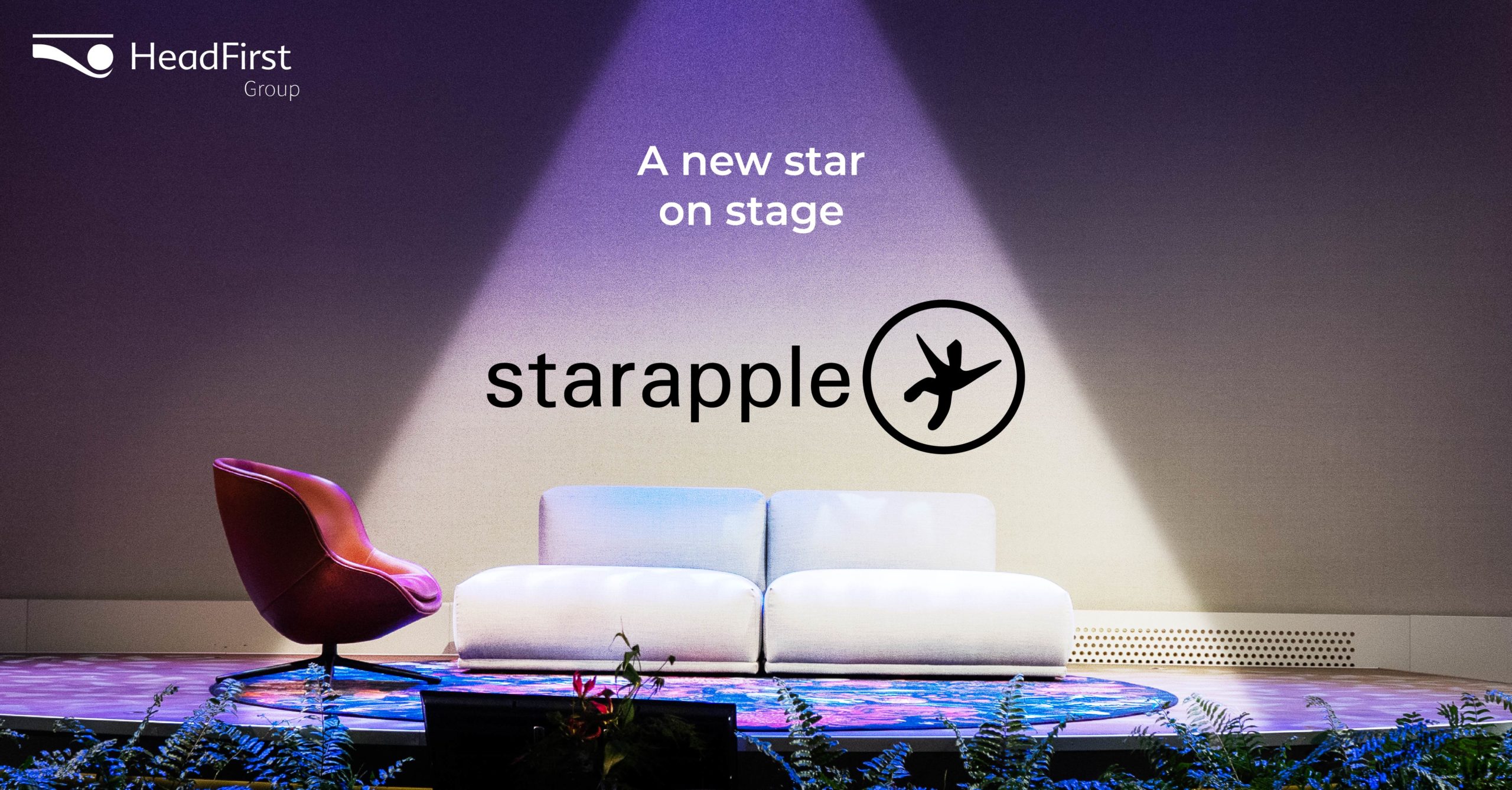
HR technology service provider HeadFirst Group Adds StarApple Group, consisting of the brands StarApple and StackOps, to its organization. Both companies are specialized in sourcing IT and digital specialists. HeadFirst Group thus takes another step in deepening its portfolio of solutions for labor market issues in the professionals segment: the current high-tech solutions of HeadFirst Group are enriched with the services with a great human touch of StarApple Group.
StarApple Group, is an ambitious and young organization, founded in 2008 and has since grown into a successful IT talent sourcer. StarApple Group has already successfully connected more than 10,000 specialists to a variety of organizations. Caner Hamamioglu, General Director at StarApple Group: "Growing talent is our mission. We do this by carefully connecting professionals from our network to assignments, where professionals not only do what they have done before with other clients, but are also challenged to take a step forward in their development. Design your career, we call that. With the cooperation with HeadFirst Group we can do this on an even larger scale and we are looking forward to that enormously."
Responding to dynamic market
HeadFirst Group foresees that combining various services is necessary to continue to solve all the issues of clients in today's dynamic labor market. Marion van Happen, CEO at HeadFirst Group: "The scarcity in the labor market will not disappear in the coming years. This requires creativity in opening up the market. We believe that combining high-tech solutions with services with a great human touch is the key to customer success. For us, those customers are both clients - whom we continuously provide with mission critical talent - and professionals, whom we actively help from assignment to assignment with the most attractive clients."
StarApple Group remains independent
StarApple will become an independent brand within HeadFirst Group, maintaining its own identity. The current management will continue to lead the organization in its growth strategy into the future. Hamamioglu: "HeadFirst Group will be the driving force behind StarApple. With our enthusiastic team of over eighty colleagues, we will continue to offer a full service recruitment solution for our clients and professionals. And we get access to the group's platform, which gives us extra power to realize our growth ambitions."




